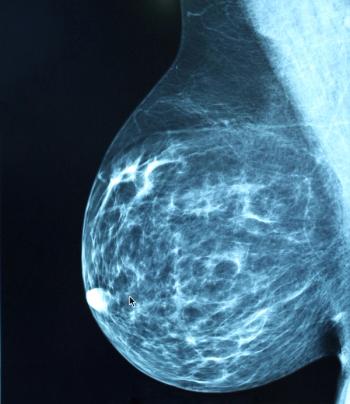
Oncology NEWS International
- Oncology NEWS International Vol 9 No 7
- Volume 9
- Issue 7
Medicare to Cover Beneficiaries’ Routine Care in Clinical Trials
WASHINGTON-President Clinton has ordered Medicare to begin paying for the routine care of all its beneficiaries who participate in clinical trials. The president also directed that the Department of Health and Human Services (HHS) take other actions to promote the participation of older patients in clinical trials.
WASHINGTONPresident Clinton has ordered Medicare to begin paying for the routine care of all its beneficiaries who participate in clinical trials. The president also directed that the Department of Health and Human Services (HHS) take other actions to promote the participation of older patients in clinical trials.
Until the president issued his executive memorandum directing a policy revision, Medicare policies discouraged recipients from taking part in clinical trials. As a result, providers and patients could not be certain that Medicare would reimburse the costs of care that is routinely covered when a patient receives the standard treatment for a disease, although it often did.
In announcing the Presidents decision, the White House cited a recent Institute of Medicine report that urged policy changes to increase the participation of older Americans in clinical trials. It also noted the bipartisan support for legislation pending on Capitol Hill that would ensure coverage of routine care for Medicare patients who participate in such trials.
According to a White House statement, only about 1% of older Americans take part in clinical testing. For example, 63% of cancer patients are age 65 years or older, but this age group constitutes only 33% of enrollees in clinical trials. Among older women with breast cancer, the disparity is even sharper; 44% of breast cancer patients are 65 or older, but only 1.6% are entered into clinical trials.
These low participation rates hinder development of new therapies, as it often takes between 3 and 5 years to enroll enough participants in a trial, Medicares Jeffrey Kang, MD, told the House Committee on Government Reform on the day the Presidents directive was announced.
Dr. Kang, director of the Health Care Financing Administration (HCFA) Office of Standards and Quality, said that Medicare historically did not cover clinical trials because they did not meet the requirement of being reasonable and necessary.
However, he added, in response to the Presidents directive, Medicare will move quickly to implement this new policy by formally and explicitly instructing our contractors to provide such coverage. In his executive memorandum, Mr. Clinton also directed the HHS to:
Initiate a campaign to inform Medicare patients of the new clinical trials coverage option.
Establish a system to track spending in trials that Medicare helps support.
Ensure that information gained from important clinical trials is used in making coverage decisions.
Evaluate the feasibility and advisability of taking additional action to increase the participation of older Americans in clinical trials as a way to assess the best therapies for that age group.
Develop a registry of ongoing clinical trials receiving Medicare reimbursement.
To help guide Medicare coverage, the White House said that HCFA and the National Institutes of Health will work with researchers prior to the beginning of a clinical trial that has significant implications for the Medicare program. The goal is to structure such trials in a way that will provide information useful to HCFA in making coverage decisions.
Articles in this issue
over 25 years ago
Couric Urges Doctors to Talk to Patients About Colon Cancerover 25 years ago
Automated Imaging Notification System Close to Fail-Safeover 25 years ago
Higher Dairy Consumption Linked to Prostate Cancer Riskover 25 years ago
First-Year Funding of Early Detection Research Network Completeover 25 years ago
Gritty Antitobacco Ads and More From Legacy Foundationover 25 years ago
Tositumomab Effective for Low-Grade Follicular Lymphomaover 25 years ago
New Awards Spotlight Courage of Cancer Survivorsover 25 years ago
Hospital Volume Shown to Predict Breast Cancer Outcomeover 25 years ago
New Drug Information Websiteover 25 years ago
NCCN Presents Updated Colorectal Cancer GuidelinesNewsletter
Stay up to date on recent advances in the multidisciplinary approach to cancer.





































